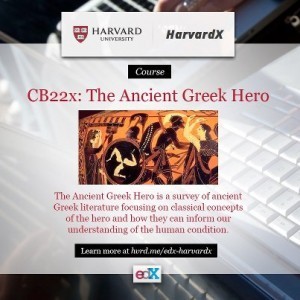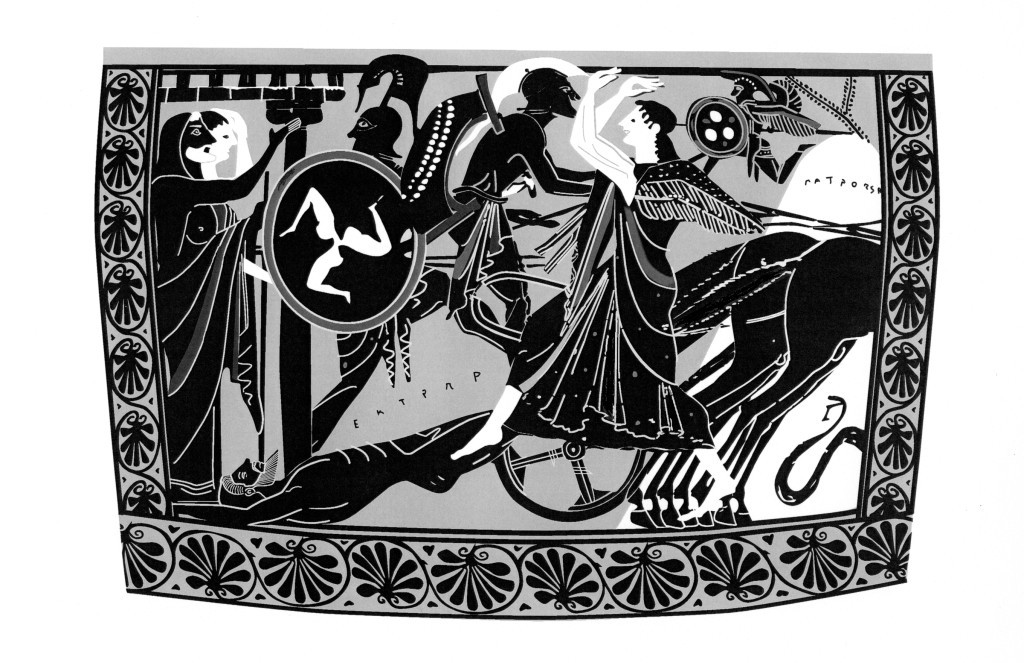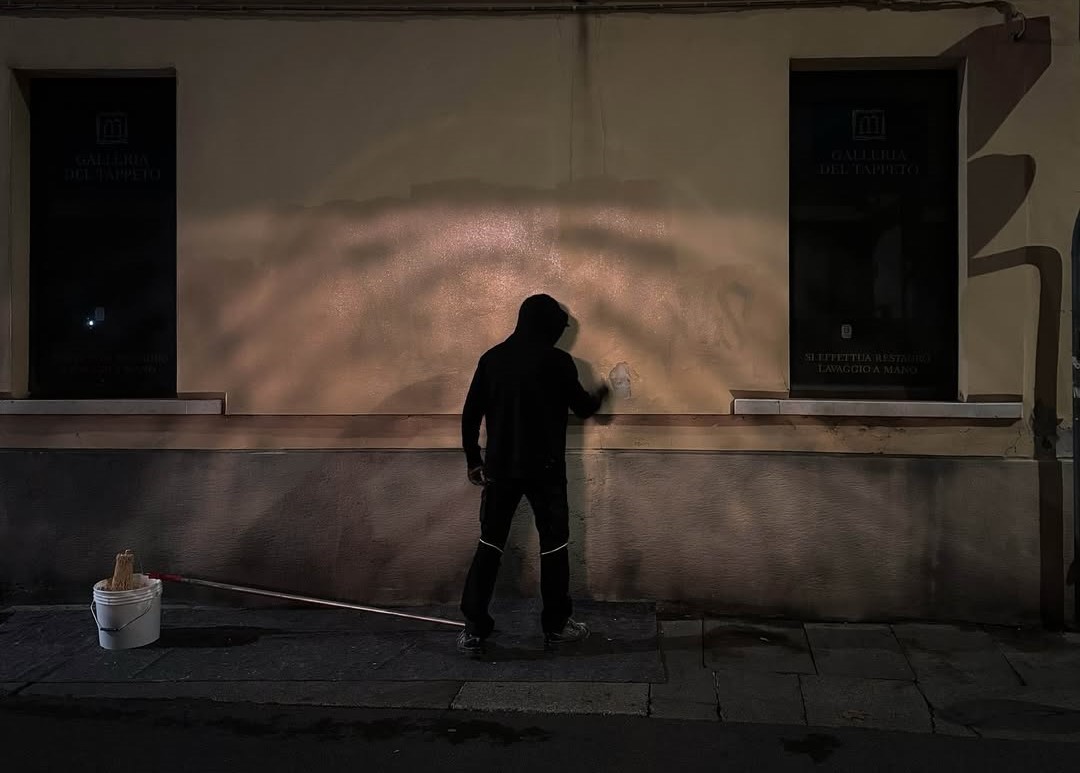By Gregory Nagy, Leonard Muellner and Claudia Filos
This brief article is co-authored by Gregory Nagy, Leonard Muellner, and Claudia Filos, who are by default the referents of “we” and “us” and “our” in this text. The only cases of “I” and “me” and “my” have to do with Gregory Nagy in the first two paragraphs.
The timing of these negotiations with Rob was particularly exciting for me. For one thing, “HeroesX” was to be the first humanities course offered by edX/HarvardX, and I was being given the opportunity to rethink the typical MOOC approach. Moreover I had just completed a new book, The Ancient Greek Hero in 24 Hours (H24H), which was aimed at a wide audience and represented the product of 37 years of research and teaching. I negotiated with Harvard University Press to waive my royalties in exchange for permission to share a free version with the participants of HeroesX, because I hoped it was an ideal text for such a project. As a result, H24H was published in print by HUP in 2013, but it is also available as a free, downloadable epub from the Online Publications page of Harvard’s Center for Hellenic Studies (CHS) in Washington DC, where I serve as Director while commuting back-and-forth between Washington and Cambridge MA. Since my experience has shown that a collaborative, multigenerational approach is often most successful, I assembled a diverse “skunkworks” team and then a more formal Board of Readers chaired by Leonard Muellner, who is a professor of Classical Studies at Brandeis University and Director of Information Technology and Publications at CHS. Another key member of our team, recruited right from the start, was Claudia Filos, whose role centers around curriculum and community development. From here on, as already noted in the first sentence, the pronouns “we” and “us” and “our” refer to Greg, Lenny, and Claudia as co-authors of this brief article.
Our goal from the start was to foster a global and ongoing dialogue where participants could engage with ancient texts and with each other in a meaningful way. We identified a dozen former teachers of the Harvard course who offered to participate in our online discussion. And we collaborated with the Registrar and the Alumni Office to launch an unprecedented outreach effort to over 7,600 Harvard alumni of the course. The result of this collaboration is The Ancient Greek Hero, a community-based learning initiative that offers free and open access to content, conversation, and community. The project assumes no previous knowledge about the culture, language, or history of ancient Greece. All the content—including primary texts, secondary texts, videos, audio files, images and more—is designed to be equally accessible and transformative for a wide audience.
What do we mean by transformative content? Participants experience, in English translation, some of the most celebrated works of ancient Greek literature and song-making, spanning over a thousand years from the the eighth century BCE through the third century CE: the Homeric Iliad and Odyssey; tragedies by Aeschylus, Sophocles, and Euripides; songs composed by Sappho and Pindar; dialogues of Plato, and more. Greg has carefully selected and translated over 250 passages from these works with special attention to key terms which are transliterated and tracked throughout. These Texts and key words are the focus of discussion in both H24H and in our video dialogues. Throughout our analysis we alert our participants about the dangers of reading our own values into these works, while modeling techniques for reading out of them This inductive approach allows readers with little or even no experience in the subject matter to begin seeing this literature as an exquisite, perfected system of communication.
Introduction to The Ancient Greek Hero – the popular free online Harvard course that runs for a semester and casts the spotlight on classical literature, song, performance and cult –
An introduction to the course –
How to use the course –
Akhos and Penthos –
About the authors of this article –
Gregory Nagy
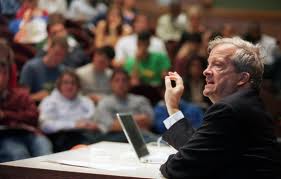
Gregory Nagy is the Francis Jones Professor of Classical Greek Literature and Professor of Comparative Literature at Harvard University, and is the Director of the Center for Hellenic Studies, Washington, DC. In his publications, he has pioneered an approach to Greek literature that integrates diachronic and synchronic perspectives. His books include ‘The Best of the Achaeans: Concepts of the Hero in Archaic Greek Poetry’ (Johns Hopkins University Press), which won the Goodwin Award of Merit, American Philological Association, in 1982; also ‘Pindar’s Homer: The Lyric Possession of an Epic Past’ (Baltimore: Johns Hopkins University Press, 1990), ‘Poetry as Performance: Homer and Beyond’ (Cambridge: Cambridge University Press, 1996), ‘Homeric Questions’ (Austin: University of Texas Press, 1996), ‘Homeric Responses’ (Austin: University of Texas Press, 2003), ‘Homer’s Text and Language’ (University of Illinois Press 2004), ‘Homer the Classic’ (Harvard University Press, online 2008, print 2009), and ‘Homer the Preclassic’ (University of California Press 2010). He co-edited with Stephen A. Mitchell the 40th anniversary second edition of Albert Lord’s ‘The Singer of Tales’ (Harvard Studies in Comparative Literature vol. 24; Harvard University Press, 2000), co-authoring with Mitchell the new Introduction, pp. vii-xxix. Professor Nagy has taught versions of this course to Harvard College undergraduates and Harvard Extension School students for over thirty-five years. Throughout his career Nagy has been a consistently strong advocate for the use of information technology in both teaching and research.
Leonard Muellner
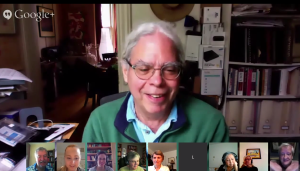
Leonard Muellner is Professor of Classical Studies at Brandeis University and Director for IT and Publications at Harvard’s Center for Hellenic Studies. Educated at Harvard (Ph.D. 1973), his scholarly interests center on Homeric epic, with special interests in historical linguistics, anthropological approaches to the study of myth, and the poetics of oral traditional poetry. His recent work includes “Grieving Achilles,” in Homeric Contexts: Neoanalysis and the Interpretation of Oral Poetry, ed. A. Rengakos, F. Montanari, and C. Tsagalis, Trends in Classics, Supplementary Volume 12, Berlin, 2012, pp. 187-210, and “Homeric Anger Revisited,” Classics@Issue 9: Defense Mechanisms, Center for Hellenic Studies, Washington, DC, September, 2011.
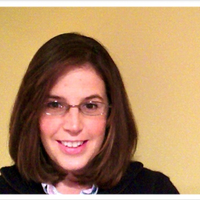
Claudia Filos is Manager for Curriculum and Community Development at Harvard’s Center for Hellenic Studies. She holds an MA from Brandeis University, and her thesis is titled “Steadfast in a Multiform Tradition: “Steadfast in a Multiform Tradition: ἔμπεδος and ἀσφαλής in Homer and Beyond”. Her teaching and research interests include Homer, oral poetics, the cult of saints, and comparative work on the reception of classical themes and diction during late antiquity and the romantic period. She is committed to improving opportunities for meaningful research by undergraduates and nontraditional scholars and to promoting the study of classical languages and literature outside the university setting.
Ask me anything
Explore related questions

